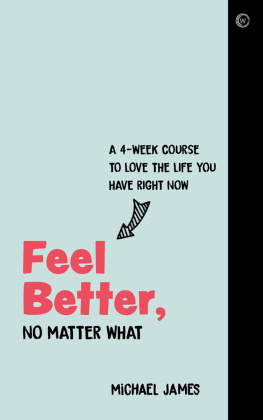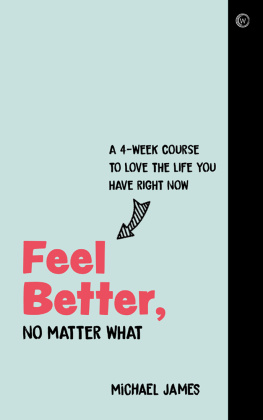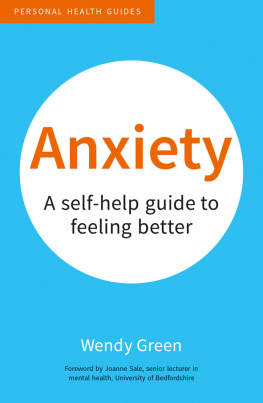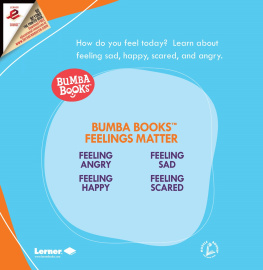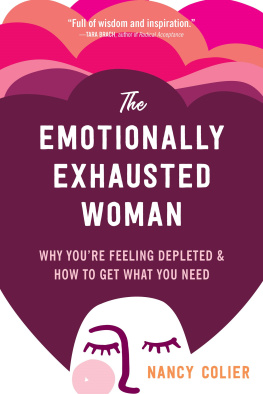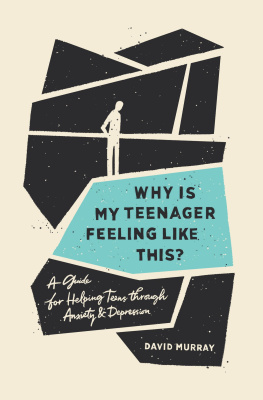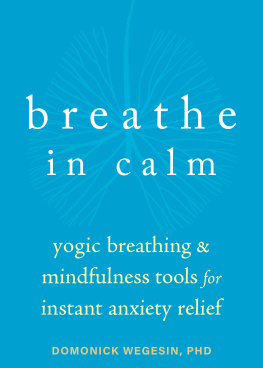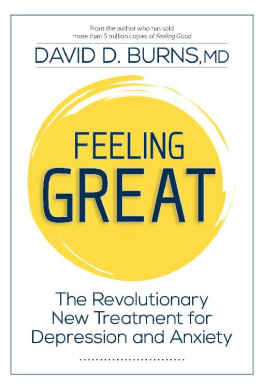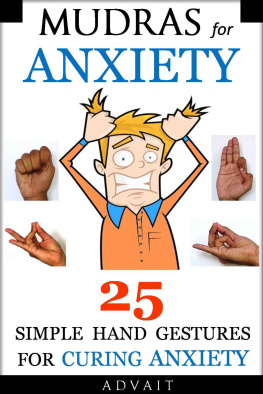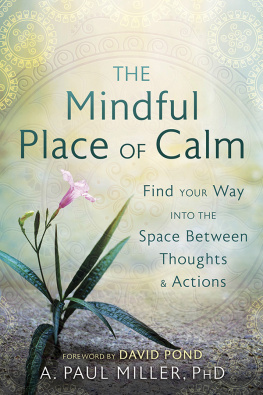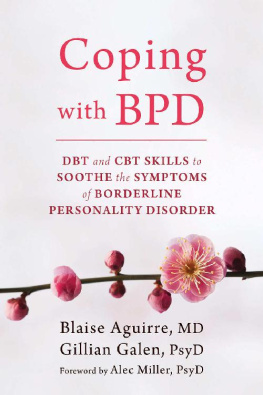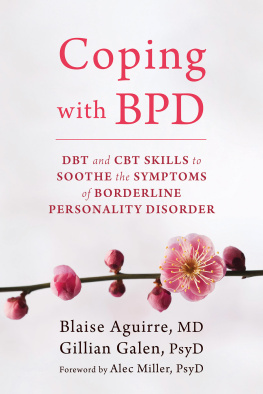

This ebook first published in the UK and USA in 2020 by
Watkins, an imprint of Watkins Media Limited
19 Cecil Court
London WC2N 4EZ
Design and typography copyright Watkins Media Limited 2020
Text copyright Michael James 2020
The author has asserted his right under the Copyright, Designs and Patents Act 1988 to be identified as the author of this work.
All rights reserved.
No part of this book may be reproduced or utilized in any form or by any means, electronic or mechanical, without prior permission in writing from the Publishers.
ISBN: 978-1-78678-497-1
www.watkinspublishing.com
Publishers note: The information in this book is not intended as a substitute for professional medical advice and treatment. If you are pregnant or are suffering from any medical conditions or health problems, it is recommended that you consult a medical professional before following any of the advice or practice suggested in this book. Watkins Media Limited, or any other persons who have been involved in working on this publication, cannot accept responsibility for any injuries or damage incurred as a result of following the information, exercises or therapeutic techniques contained in this book.
CONTENTS
PREFACE: EMOTIONAL FREEDOM DURING WORLDWIDE CRISIS
Using this time to develop new, beneficial habits ready for your best life yet
When you are going through a challenge, such as the current situation in the world, the overthinking mind can go into overdrive. I'm talking about that part of our mind that thrives on drama and relishes, for example, reading all those sensationalised news stories over and over again, going way beyond gathering the basic facts you might require.
Of course these basic facts include government directives and I would absolutely recommend following the official guidance of social distancing, hand washing, etc (please read up on them and apply them right now). I can see the logic in this and it's a priority.
The next thing I suggest you do is balance this epidemic of fear that's sweeping the planet with practices to centre yourself. In this way, you will ride the wave of fear rather than be swept up in it. And I hope that's where this book comes in.
In times of crisis, there are always a lot of people gossiping about fear and sharing worst-case scenarios, which is something the ego mind loves doing. Even some of the information coming from so-called spiritual sources right now is fear-based so you want to be aware of that. In my opinion, they ought to know better, but like many other people they are panicked and in panic, we rarely offer accurate words of wisdom. And so, before I wrote this introduction and indeed this book I paused. I centred myself. And I listened within.
A call to "go within
There have always been challenges on this planet. Challenges help us evolve, even when they look like they are too difficult to handle. Challenges are potentially changes that open the door to something better. When you look at the words themselves, change is literally within "challenge".
Right now, it is as if we are entering a collective "retreat". Those excuses and endless distractions are being taken away for the time being, as all those places we are used to passing the time in start to close.
One of the reasons people choose to enter retreat centres is because they feel they couldn't do their daily practices to find connection while still in the bustling everyday world, so they move to a place without distraction to "force" them to do these practices. To apply this to our own lives, I'm talking about those empowering practices we can do to clear our mind and get in touch with a power greater than ourselves. So now the place of retreat has moved to us, whether we like it or not. We are left with ourselves. And we are invited or even nudged to begin our inner work.
Information overload
This is a time of information overload and we can easily get carried away with watching endless hours of self-help theory on YouTube, some of which is helpful and some of which isn't. Watching videos from the latest so-called guru can be entertaining but it can also become a way to procrastinate. By all means watch these videos, but there comes a point when you will want to turn off and get on with your own inner work rather than watching someone else doing theirs.
When it comes to theory, I admit we need to know the basics (and that's partly what this book is for, to clearly explain these basics), but then, let's always put what we know into practice. One of the biggest blocks to most people's journey (apart from studying flawed theory) is procrastination. We may know to meditate for half an hour every day, for example, but are we doing it? We download apps about meditation and yet we don't meditate. We know about the power of writing lists of gratitude, but we just don't do it.
And so at times like these it makes sense to begin a new routine. We can take up a practice of meditation or deepen the practice we have, with longer, more regular durations. We can start an at-home exercise programme. We can write lists of gratitude about our lives and the world around us and we can even look for the benefits in what's going on right now. I've given you one to start you off this is a nudge to do those practices which will change your life for the better, right now, with the benefits continuing way beyond when this situation is resolved.
Riding the wave: Meditation and gratitude
When a wave comes, you can't change the wave or get rid of the wave. Instead you want to alter your perspective. Developing a regular practice of meditation does that. It aligns your surfboard as it were: it repositions you in the wave so you can gain the benefits rather than be swept up in it.
And then there's gratitude. We want to look for things to be happy about. There are so many things to find, right here and right now, if we look. But first we have to make that effort to look.
When we are in fear, it's admittedly not so easy to start "counting our blessings", and even the thought of doing so can be annoying to say the least. So first we want to be kind to ourselves and let ourselves be as we are. We want to make friends with however we are feeling right now. It's ok, and I hope this book will reassure you of this. Once we have done this, we can then try to look for joy.
The next stage of gratitude is radical; it's daring to embrace the challenge itself, even if it logically makes no sense to do this. We can look for the possible benefits: for example, people being kinder to one another, and the world coming together as it often does in times like this. New ideas emerging and new better ways of living. People re-evaluating their lives and of course correcting them if necessary; discovering a new, more loving way of being which brings them greater individual happiness and happiness for others. And yes, being "nudged" to do this important inner work we may have been putting off until now.
Developing new, beneficial habits
Once you have centred yourself using gratitude and meditation, your intuitive sense will be heightened. You will naturally turn away from those fear-based teachings that don't resonate. Instead, we want to make the effort to look for that silver lining in the situation as soon as we can.
Deep down you are very intuitive. And you do know what to do. These new times involve doing our best first to find joy and connection, not deliberately scaring ourselves further into drama. Looking for the best in others and in life. Giving ourselves the benefit of the doubt and then giving others the benefit of the doubt. From this clear minded state of being, we will step up to our life's purpose and inspire others. After all, the world needs leaders who are sure-footed and optimistic, as well as realistic. No matter how it looks, now is an opportunity to wake up and prepare to enjoy life at an even deeper level than ever before. It's time to discover more love for ourselves and for one another. It's time to be ourselves and let others be themselves.
Next page

